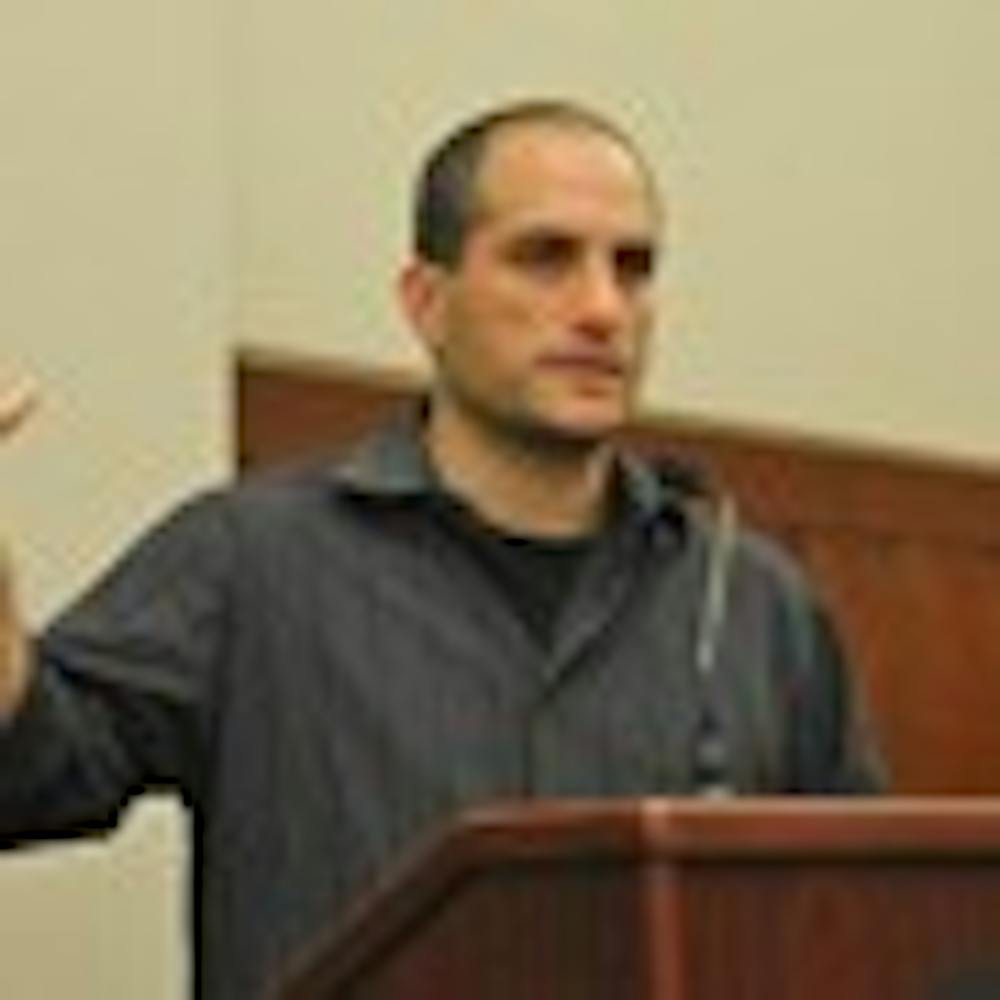Fresh off the plane from Dubai, two Palestinian rights activists didn’t even have time to rest before speaking to students at Penn.
Huwaida Arraf and Adam Shapiro spoke to a crowd of about a hundred people about the International Solidarity Movement— a Palestinian rights organization they co-founded — and the flotilla mission to Gaza this May that generated international attention and outrage when Israeli commandos intercepted the flotilla and killed nine activists onboard.
Arraf, who is a Palestinian American and an Israeli citizen, spoke passionately about her organization and the broader Free Gaza Movement of which it is a part. “It’s not just about Gaza,” she said. “It’s about mobilizing people to take action, to stand up to unjust policies.”
She described the movement’s beginnings in 2001 when her organization started bringing people to see firsthand the “almost indescribable” situation. When Israel blockaded Gaza in 2007 in response to Hamas’ takeover of the territory, the ISM began sending ships to challenge the Israeli sea blockade, which culminated most recently with this May’s flotilla, on which she was a passenger.
Though she was not onboard the Mavi Marmara — the boat on which the nine activists were killed — Arraf was critical of the Israeli military’s actions during the incident. “Our boat was not taken peacefully,” she said. “Masked and armed commandos boarded, and they knocked down anyone who got in their way.”
Shapiro — Arraf’s husband who was not on the flotilla — spoke about the impact the incident had on the Israeli blockade and its international press.
“Two weeks after [the International Committee for the Red Cross] came out with a statement saying the blockade was a form of collective punishment,” he said. Even more importantly, he noted, the Israeli government eased restrictions on what can and cannot enter the Gaza Strip.
In a question-and-answer session after the talks, Arraf and Shapiro addressed criticism of Hamas and the need for dialogue.
“As long as both peoples aren’t free, the dialogue can’t do much of anything,” Shapiro said. “Dialogue can only occur when the occupation ends.”
Most attendees expressed support for Arraf and Shapiro’s work, though some were more skeptical.
“What I find most concerning is a dialogue of ‘us vs. them,’” said College freshman Josh Cooper.
Engineering senior and President of Penn for Palestine Dara Elass said she was very pleased with the talks and the turnout.
“To see someone who really made a difference, I think it’s inspirational.”



